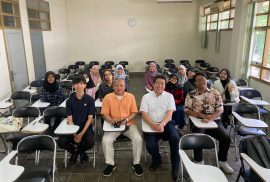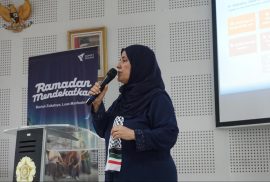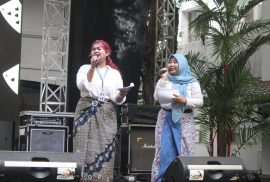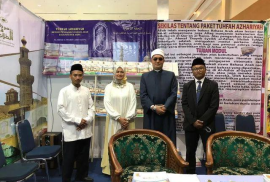On Tuesday, March 19, 2024, the UGM Japanese Language and Culture Study Program held a socialization of working in Japan together with Marimo Group. The activity which was carried out on the basis of this collaboration was attended by representatives of Marimo Group, Manager of International Human Resource Development Marimo Holdings Inc. Kanakuchi Yuya and Tatang Hariri, Ph. D. as Head of the Japanese Language and Culture Study Program along with final year students and alumni of BKJ Study Program.
The activity began with the introduction of Marimo Group to the socialization participants. Marimo Group is a company engaged in the property sector with headquarters in Hiroshima City, Japan which now has more than 21,000 mansion units throughout Japan. Currently, Marimo is opening opportunities for final year students or alumni of BKJ Study Program who are interested in working in Japan. Marimo can assist applicants in finding suitable jobs according to their interests and talents. Jobs that are generally in demand are in the field of translation and hospitality, but it does not rule out the possibility if you want to apply in a field that is not offered.
Being with Marimo as a partner in working abroad can certainly make a sense of security and comfort when working. Feelings of homesickness while working can also be relieved because, with connections from Marimo we can still meet with Indonesians. This good opportunity is expected to be utilized by academics and alumni to gain experience in the world of work.






